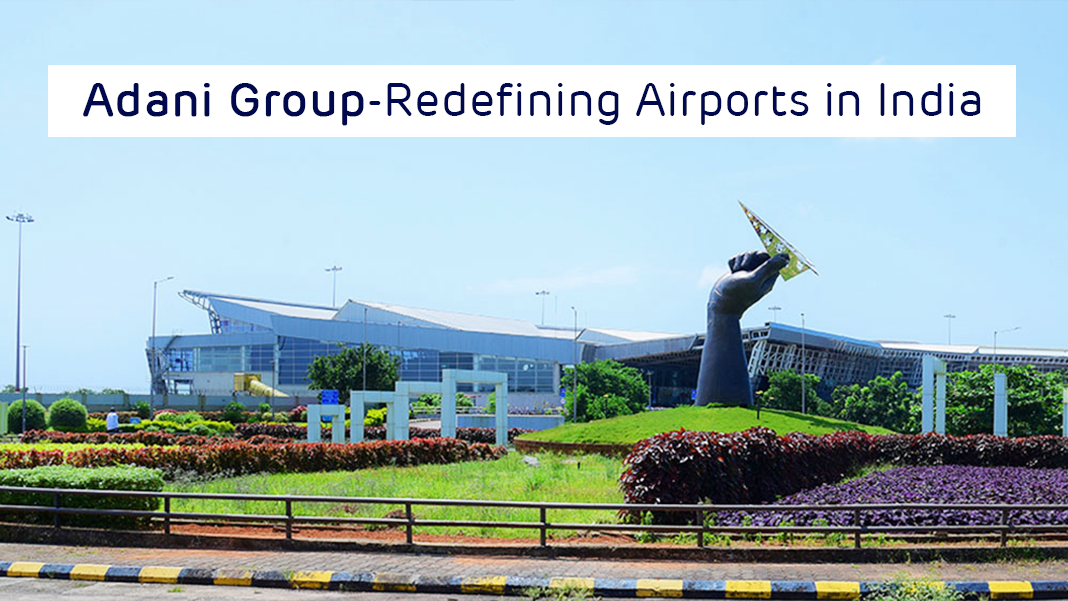Introduction
The Adani Group stands as an epitome of transition and expansion in the changing environment of Indian commercial giants. Adani Airport Holdings Limited, led by the visionary Gautam Adani, was established in 2019 as a wholly-owned subsidiary of Adani Enterprises Ltd. It has become India’s largest airport operator, with the aim of becoming the global leader in integrated infrastructure and transport logistics.
The Adani Group’s Rise in Aviation
On July 13, less than a year after entering India’s lucrative airport industry, the 35-year-old Adani Group achieved something that even veterans in the Indian airport sector couldn’t achieve. The Adani Group made its debut in the airports sector by winning bids to operate, manage, and develop six airports in Ahmedabad, Lucknow, Mangaluru, Jaipur, Guwahati, and Thiruvananthapuram and signing concession agreements with the Airport Authority of India for all six. Their strategic purchase of numerous significant airports throughout India marked the beginning of the Adani Group’s rise in the aviation industry.
However, their takeover of Mumbai International Airport Limited (MIAL) in February 2021 ultimately drove them to the top of the Indian aviation business. The airport will become operational in 2024. AAHL secured interest in Mumbai International Airport Ltd. and Navi Mumbai International Airport Ltd., giving it a 73% and 74% stake in the enterprise, respectively. It also stands responsible for 25% of passenger volume and 33% of air cargo traffic in India.
Gautam Adani’s ambition was simple: to evolve and revolutionise the airport experience, providing passengers with world-class infrastructure and services. Under his guidance, the Adani Group swiftly renovated and modernised these airports to turn them into world-class centres of gravity.
Sustainability as its Foundation
Its steadfast dedication to sustainability and reliable business practices truly set the Adani Group apart. In an era where environmental concerns are paramount, the Adani Group has greatly minimised negative impacts on the environment.
One of the major standouts is their commitment to using solar power. The Adani Group has invested heavily in solar power installations at several of its airports. Solar panel installation minimises their carbon footprint and acts as a paradigm for renewable energy adoption in India’s construction of infrastructure. This program aims to match India’s renewable energy ambitions and effectively indicates the organisation’s proactive fidelity to sustainable practices.
Technological Advancements
With a solid understanding of modern-day mobility requirements, Gautam Adani’s foresight has led the Adani Group to embrace revolutionary airport management technology. From biometric-enabled seamless boarding processes to automated baggage handling systems, the company aims to upgrade passengers’ experiences and operational efficiency.
These developments expedite airport operations and align with global norms, making Indian airports more competitive on the world stage.
Community Development Ingenuity
The Adani Group acknowledges that business success should be integrated with community development. They have started a number of projects to help the communities around their airports. The corporation wants to build ‘lifestyle destinations’ for customers both inside and outside the airport. Adani wants to conquer the airports sector with a 300 million+ consumer base utilizing the network effect and consumer psyche.
Furthermore, the Adani Group has created skill development centres near their airport locations to provide chances for skill advancement and employment to local natives. These initiatives demonstrate their ethical business practices and commitment to enabling the communities in which they operate.
Recent Initiatives
- In FY22, AAHL airports handled 36.9 million passengers, accounting for at least 20% of total passenger traffic in India.
- Adani Group also intends to construct aerotropolises near airports. These “aero cities” will house a range of hotels, convention centers, retail stores, entertainment venues, medical centers, logistical units, and commercial offices.
- Adani intends to dominate the airports sector with a consumer base of 300 million or more by using the network effect and consumer psychology.
Conclusion
The Adani Group’s path to becoming India’s largest airport operator has been nothing short of astounding. Their emphasis on environmental responsibility, sustainable and community development, and technical innovation serves as a paragon for other Indian firms, seeking inspiration from Gautam Adani.
In conclusion, the success of the Adani Group is an example of what can be accomplished when visionary leadership, sustainable business methods, and a dedication to community improvement are united. They are transforming the face of Indian aviation as the country’s largest airport operator. Still, they also influence how the nation will conduct ethical and sustainable business in the future.
















